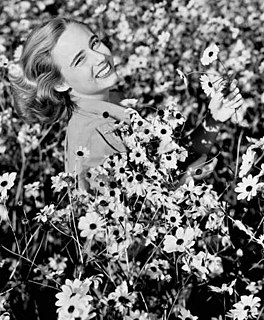A Quote by Ned Beauman
Plot is tremendously important to me: I can't stand books where nothing happens, and I can't imagine ever writing a novel without at least one murder.
Related Quotes
"Nothing ever happens like you imagine it will," she says. The sky is like a monochromatic contemporary painting, drawing me in with its illusion of depth, pulling me up. "Yeah, that's true," I say. But then after I think about it for a second, I add, "But then again, if you don't imagine, nothing ever happens at all."
With a novel, you have the reader with you a lot longer, and you owe him a lot more. Obviously you have to have a plot - I say "obviously," although I think a lot of fiction doesn't, and nothing seems to happen. But to me, there should be something that happens, and it should be at least vaguely plausible. And because the readers are going to be with these characters for a long time, you have to get to know them and like them and want to know what happens to them.
For me, writing is a job. I do not separate the work from the act of writing like two things that have nothing to do with each other. I arrange words one after another, or one in front of another, to tell a story, to say something that I consider important or useful, or at least important or useful to me. It is nothing more than this.
I always write a draft version of the novel in which I try to develop, not the story, not the plot, but the possibilities of the plot. I write without thinking much, trying to overcome all kinds of self-criticism, without stopping, without giving any consideration to the style or structure of the novel, only putting down on paper everything that can be used as raw material, very crude material for later development in the story.
Why are murder mysteries so popular? There's a 3-part "formula" (if you want to call it that) for a genre novel: (1) Someone the reader likes and relates to (2) overcomes increasingly difficult obstacles (3) to reach an important goal. The more important the goal, the stronger the novel. And the most important goal that any of us have is survival. That's why murder mysteries are more gripping than a story titled "Who Stole My TV Set.
Writing is what's important to me, and anything that helps me do that - or enhances and prolongs and deepens
and sometimes intensifies argument and conversation - is worth it to me. [It is] impossible for me to imagine having
my life without going to those parties, without having those late nights, without that second bottle.
For me, writing is a job. I do not separate the work from the act of writing like two things that have nothing to do with each other. I arrange words one after another, or one in front of another, to tell a story, to say something that I consider important or useful, or at least important or useful to me.
While working on my first five books, I kept wishing I was writing a novel. I thought until you wrote a novel, you weren't taken seriously as a writer. It used to trouble me a lot, but nothing troubles me now, and besides, there has been a change. I think short stories are taken more seriously now than they were.






































